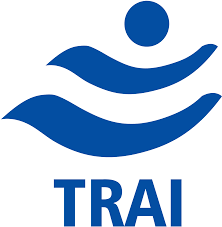TRAI Finalizes Guidelines for Spectrum Assignment to Satellite-Based Services
DoT sought TRAI’s recommendations under Section 11(1)(a) of the TRAI Act, 1997, focusing on the policy and pricing framework for the assignment of spectrum for satellite-based services.

- Country:
- India
The Telecom Regulatory Authority of India (TRAI) has officially released its much-anticipated Recommendations on the “Terms and Conditions for the Assignment of Spectrum for Certain Satellite-Based Commercial Communication Services.” This development marks a critical milestone in the evolution of India’s space-based telecommunications ecosystem and comes after months of consultation and deliberation with industry stakeholders.
Background and Regulatory Framework
The initiative stems from a request made by the Department of Telecommunications (DoT) on 11th July 2024, following the provisions outlined in the Telecommunications Act, 2023. DoT sought TRAI’s recommendations under Section 11(1)(a) of the TRAI Act, 1997, focusing on the policy and pricing framework for the assignment of spectrum for satellite-based services. The objective was to ensure equitable conditions between terrestrial and non-terrestrial service providers.
TRAI’s recommendations encompass:
-
Non-Geostationary Orbit (NGSO) based Fixed Satellite Services (FSS) for data and Internet communication.
-
Geostationary Orbit (GSO)/NGSO based Mobile Satellite Services (MSS) delivering voice, text, and internet services.
Consultative Process
To lay the groundwork for these recommendations, TRAI released a consultation paper on 27th September 2024, outlining 21 key issues and inviting public and industry feedback. The comment deadlines were extended from 18th October to 25th October, and counter-comments from 25th October to 1st November, based on stakeholder requests.
The consultation process was comprehensive, garnering input from 30 stakeholders and 12 counter-comments. An open house discussion was also organized virtually on 8th November 2024 to foster deeper engagement.
Key Recommendations on Spectrum Assignment
TRAI has laid out a detailed framework for spectrum assignment and operational guidelines. Key recommendations include:
Spectrum Bands Allocation
-
NGSO-based FSS (for data and Internet services): Ku, Ka, and Q/V bands for both user and feeder links.
-
GSO/NGSO-based MSS (for voice, text, and Internet):
-
User Links: L and S bands
-
Feeder Links: C, Ku, Ka, and Q/V bands
-
Validity Period
Spectrum assignment for both NGSO-based FSS and GSO/NGSO-based MSS is proposed for a duration of five years, extendable by up to two years based on market conditions.
Policy Tenure and Future Revisions
The terms and pricing laid out will remain effective for five years from the date the central government notifies the policy. Any changes thereafter will apply uniformly to all entities, including existing service providers.
Interference and Coordination
-
ITU Radio Regulations (ITU-RR) should apply to all authorized entities.
-
Shared spectrum in higher bands (C, Ku, Ka, Q/V) must be coordinated in good faith by all operators.
-
The DoT, with Telecom Engineering Center (TEC), is advised to develop a framework for spectrum sharing, including guidelines on Equivalent Power Flux Density (EPFD).
-
A spectrum-splitting provision, similar to FCC’s rules, may be implemented if operators fail to coordinate.
Gateway and Earth Station Regulations
-
Mandatory coordination for satellite earth station gateways.
-
A TEC-led study should determine minimum coordination distances between stations.
-
Establishing satellite earth stations in IMT-designated bands (e.g., 42.5–43.5 GHz) will only be allowed in remote areas with low interference potential.
-
All satellite gateways must be operational within 12 months of the permission being granted.
Spectrum Assignment Timeline
A definitive 30-day timeline is prescribed for spectrum assignment following in-principle clearance. Objections, if any, must be communicated within the same window.
Spectrum Charges and Payment Structure
General Spectrum Charge:
-
All services (GSO FSS, NGSO FSS, MSS): 4% of Adjusted Gross Revenue (AGR)
-
Minimum annual charge: ₹3,500 per MHz
-
NGSO FSS Specific Charges:
-
Additional ₹500 per subscriber per annum in urban areas
-
No such surcharge for rural and remote areas
Payment Schedules:
-
AGR-based charges: Advance quarterly payments within 15 days of the quarter’s start
-
Minimum charges: Paid in advance annually
-
Subscriber surcharge: Paid quarterly (₹125 × Nu, where Nu = urban subscribers last quarter)
Provisions for Surrender and Subsidy
-
Authorized entities can surrender their spectrum rights before the end of the validity period under defined terms.
-
A potential subsidy for NGSO-based user terminals is recommended to promote inclusion in unserved and underserved rural areas.
TRAI’s recommendations underscore India’s strategic push to leverage satellite communications for enhancing digital connectivity. By balancing technical feasibility, equitable market conditions, and global best practices, this framework is set to enable robust participation from satellite service providers in India’s telecom ecosystem. These recommendations have been made publicly available on TRAI’s official website.
For further queries or clarifications, stakeholders can contact Shri Akhilesh Kumar Trivedi, Advisor (Networks, Spectrum and Licensing), TRAI, at +91-11-20907758.
ALSO READ
TRAI's Groundbreaking Spectrum Pricing for Satellite Internet Unveiled
ISpA Applauds TRAI's Balanced Satellite Spectrum Pricing
TRAI Releases Draft Manual to Standardize Rating of Properties for Digital Connectivity
Telecom Regulator TRAI Sets Spectrum Pricing for Satcoms, Impacting Market Dynamics
Boosting Real Estate Appeal: Trai's New Digital Connectivity Ratings










